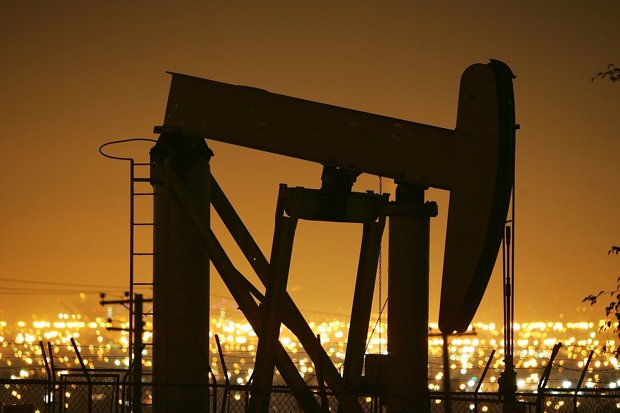| | International 
[ 2015-12-10 ] 

Brent crude has fallen to below $40 a barrel World running out of oil storage space
The world could run out of oil storage space next
year as a yawning global supply glut triggers
warnings of a shortage of spare capacity.
After more than a year of overproduction by Saudi
Arabia, Russia and the United States, figures to
be published tomorrow by the International Energy
Agency are expected to show that the glut of
commercial oil stocks in developed Organisation
for Economic Co-operation and Development
countries stands at more than three billion
barrels — a record and enough to supply all the
world’s needs for more than a month.
Amrik Sembi, the head of liquids and bulk
commodities at OpenLink, a trading group,
estimated that about 250 million barrels of spare
commercial oil storage capacity remained globally
out of a total of 3.5 billion barrels.
If stocks continue to build at present levels,
then that spare capacity could be filled as early
as February, he said. “We are talking about
somewhere in the order of 30 to 60 days left,”
he said, although he added that significant new
storage capacity was under construction in the
United States and China, which could extend the
time frame before a crunch occurs.
Mr Sembi said that as storage filled up, oil
traders and brokers might try to place more crude
in floating tanker vessels rather than at onshore
storage terminals, such as the vast complex at
Cushing, Oklahoma, the world’s biggest crude
storage facility.
The warning came as the price of a barrel of Brent
crude slipped below $40 this week for the first
time since 2009, after Opec, the oil producers’
cartel, abandoned its production ceiling.
Torbjørn Kjus, an oil analyst with DNB in Oslo,
estimated that there was a 20 per cent chance that
the world would run out of oil storage capacity by
the middle of next year.
“There is a sizeable risk that we could run
totally full,” he said. “If that happens, the
oil would have to stay in the ground. There would
be large-scale shutdowns in the US and Canada.”
Mr Kjus said that the first production to be
switched off would be about 400,000 ageing
“stripper wells” in America, which
collectively pump about a million barrels a day of
crude, about 11 per cent of the country’s
output. Some of these wells — so-called because
they “strip” the remaining oil from the ground
— produce as little as two to three barrels of
oil a day from sites that were drilled in the 19th
century.
In states ranging from New York to Texas, many are
losing money, but a dip far below the $40 a barrel
level would render them uneconomic, forcing
operators to switch them off permanently.
Mr Sembi said that it was difficult to know
exactly how much tanker space remained available
around the world, because of a lack of transparent
information and the existence of government
stockpiles of oil, details of which often were
kept under wraps. There was evidence, he said,
that many governments, including China, had been
using low prices to build up their strategic oil
reserves.
John Hall, an Alfa Energy analyst, said that the
world was “awash with oil” as global output
had continued to outstrip demand this year by
between 1.6 million and 2.3 million barrels a
day.
Total oil inventories in the wealthy group of OECD
nations increased by 13.8 million barrels to about
three billion in September, a month when typically
they fall, according to the IEA. The rate of gains
slowed to 1.6 million barrels a day in the third
quarter, from 2.3 million a day in the second
three months, although growth remained
“significantly above the historical average”,
the IEA said.
There are signs that some fuel storage facilities
in the eastern hemisphere are filled to capacity.
Mike Wittner, a Société Générale analyst in
New York, said that most of the world’s
available storage capacity was located in the
United States, with less in Europe and Asia, where
he said that conditions were “pretty tight”.
If the glut continues, oil cargos could start to
flow increasingly from Asia and Europe to the US,
where some storage capacity is likely to remain
available.
Source - The Times(UK)

... go Back | |



